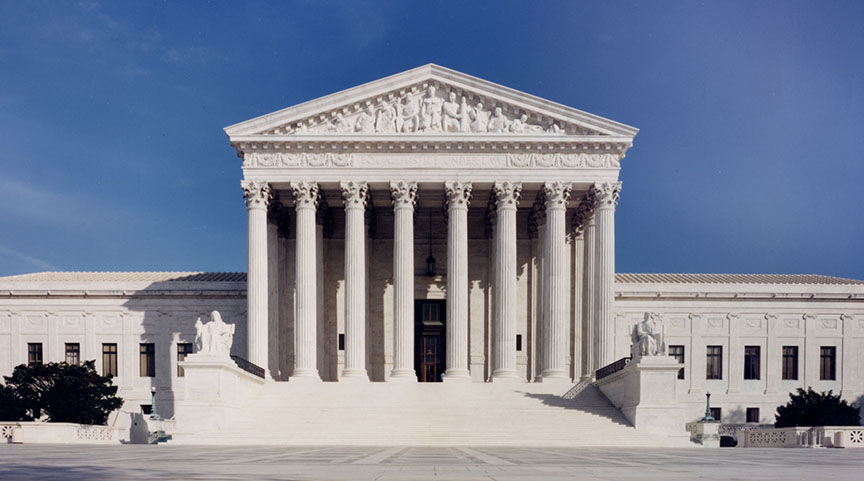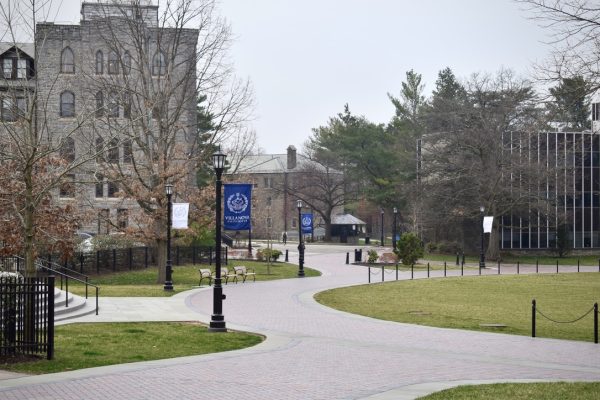Packing the Supreme Court Will Create a National Crisis
Packing the Supreme Court Will Create a National Crisis
October 30, 2018
“Win at all costs.” There is no phrase that better encapsulates the mindset that has guided President Donald Trump through his tumultuous first term of office. Years later, when looking back at Trump as a historical figure, it is easy to imagine that he will be remembered less for his controversial set of policies and more for transparent acts of contempt for the usual democratic norms. Whether it’s threatening to revoke NBC’s broadcast license in response to negative coverage, or bullying his own Attorney General over his recusal from an investigation into possible crimes, or the suggestion that he can “pardon himself” with no repercussions, Trump has shown no reservations about verbally undermining checks to his power.
Critics have, I would argue, rightly, argued that the erosion of these norms opens the door for future executives of either party to take further liberties in expanding their power. Trump’s presence is easy to see as an affront to our better democratic angels, but thankfully (not including the obstruction of justice or conspiracy that may be unearthed amid Robert Mueller’s inquiry into the president), most of his threats remain just that: threats from someone who doesn’t grasp or respect the responsibility that comes with the power he wields.
It is tempting to see these threats as enough to warrant an all-out political war, especially when Democrats seem on the verge of retaking power in the House and possibly even the Senate. The most direct antidote for Trump’s longterm impact would be to artificially reassume a liberal majority on the Supreme Court by expanding it to 11 seats. This is not prohibited under Article III of the Constitution and only requires a simple majority in each house to execute. There is a historical precedent for this type of Constitutional hardball. The number of justices fluctuated frequently in the early days of the republic, not settling at nine until 1837. Abraham Lincoln and the Republican-controlled Congress added a tenth justice in 1863 in an attempt to end slavery. And Franklin Roosevelt attempted and failed to increase the Court to 15 justices, hoping to strengthen his hand in protecting his New Deal policies.
The specter of two additional justices has been raised again by some liberal writers and advocates in the Trump era. Trump filled two Supreme Court seats under unusual circumstances. One after the Republican majority blocked Obama’s nominee from a confirmation hearing for nearly a year, and the other after Trump’s nominee probably lied under oath and was accused of sexual assault by multiple women – and ensured a conservative majority for decades to come. It is tempting to view these as suggestions that the Republican party is adopting Trump’s same governing philosophy and declaring nothing sacred. However, for the sake of our nation’s institutional health, the Democrats must resist the urge to bite back.
Adding justices to swing the Court would, without question, be the most brazen act of partisan norm-bending in decades. It would be an act that sets the Democrats beyond Trump as people who not only view Constitutional provisions as instruments of partisan power and nothing else, but who are willing to act on that philosophy to artificially strengthen their position.
For one thing, it would be a fleeting advantage, as it would break the tacitly agreed-upon makeup of the court and would invite Republicans to manipulate it further once they regain power. In the worst case, it could incite a cyclical back-and-forth by which the party that takes Congressional power automatically assumes judicial power by proxy, as they would feel emboldened to manipulate the Supreme Court to their will.
Secondly, there is the much more pernicious attack on the foundational purpose of the Supreme Court. A court that is more-or-less always in lock-step with Congress would effectively fail to fulfill its express duty of impartial judicial review. It is true that the Court has become an increasingly political tool (one could glean this from the whopping 20% of Supreme Court cases decided with 5-4 votes or even by the fact that the ruling of each justice is more or less certain before their statements are released). Were the Democrats to stack the court in their favor, they would continue this troubling swing and perhaps irrevocably propel the Court to a place where it stops being an independent, third branch of government altogether.
To do something as drastic as this would dramatically undermine the appeals Democrats have made about being the party of institutions and order. For all their hand-wringing about the stolen Merrick Garland seat, or any other Republican actors who have stood in the way of checks against Trump, an act like this would render what right now appear to be very valid criticisms hollow. It would suddenly matter a whole lot less that Mitch McConnell held a Supreme Court seat open for a year, and then had the gall to call the Democrats obstructionists because the Democrats would be dealing the final blow to the Supreme Court as we have known it for generations.








